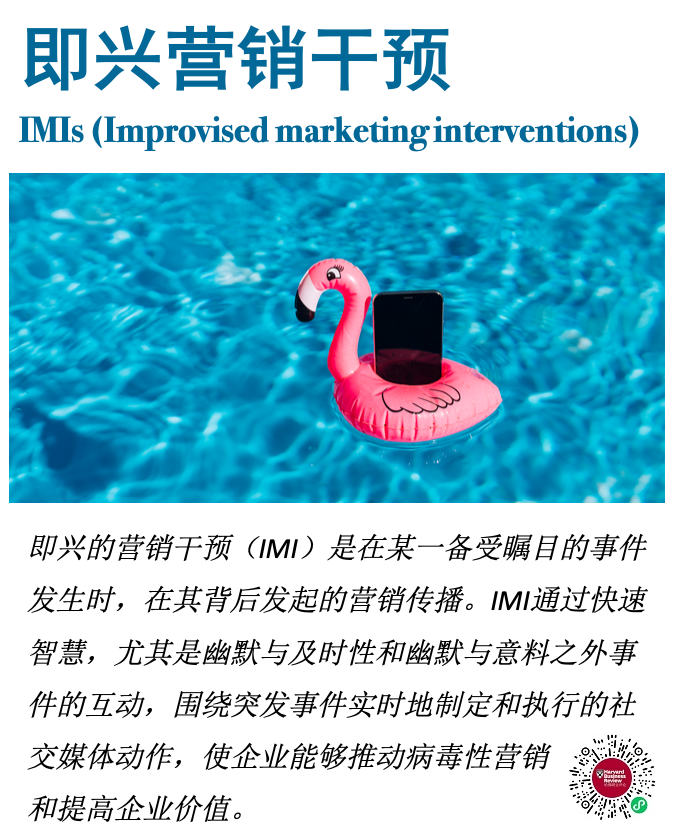
「释义」
即兴的营销干预(IMI)是在某一备受瞩目的事件发生时,在其背后发起的营销传播。IMI通过快速智慧,尤其是幽默与及时性和幽默与意料之外事件的互动,围绕突发事件实时地制定和执行的社交媒体动作,使企业能够推动病毒性营销和提高企业价值。
IMI是一种具有挑衅性的新颖营销工具。社交媒体新闻源的实时性和无休止滚动的特性使其成为IMI的理想媒介,但电子邮件、网页浏览器通知等也可以成为IMI的载体。
「应用场景」
特别版调查发现,疫情期间即兴营销的程度很高,平均得分为5.6(总分7分,1表示“完全不”,7表示“非常”)。尽管如此,调查结果还表明,在社交平台上进行的正式实验有所减少。仅有31%的营销人员表示他们为了解疫情期间开展的营销活动的影响进行了实验;29%的营销人员报告,他们将资源投入到了培养研究和实验能力中。
The Special Edition of the CMO Survey found a high level of marketing improvisation during the pandemic, with CMOs reporting an average 5.6 out of 7 (where 1 represents “not at all” and 7 represents “a great deal”). Despite this, survey results also document a decrease in formal experimentation on social platforms, with only 31% of marketers reporting that they conducted experiments to understand the impact of their marketing actions during the pandemic, and only 29% of marketers reporting that they invested resources into building research and experimentation capabilities.
这些统计数据表明,即便并未完全了解效果,营销人员也会经常实施新的即兴策略。2021年这一趋势要得到及时纠正:社交平台提供了测试新的品牌信息、广告和产品的绝佳机会——并且可以从目标消费者那里获得可评估的直接反馈。营销人员必须用这些工具进行学习。
These statistics indicate that marketers are implementing new, improvised strategies frequently, but without fully understanding their effects. They need to correct this trend in 2021: Social media platforms provide excellent opportunities to test new brand messaging, advertisements, and offerings — and to receive direct measurable feedback from target consumers. Marketers must use these tools to learn.
以上文字选自《哈佛商业评论》中文版2021年4月刊《首席营销官:调整社交媒体策略,适应后疫情世界》 克里斯汀·摩尔曼(Christine Moorman)托伦·麦卡锡(Torren McCarthy)|文 马冰仑 丨编辑





